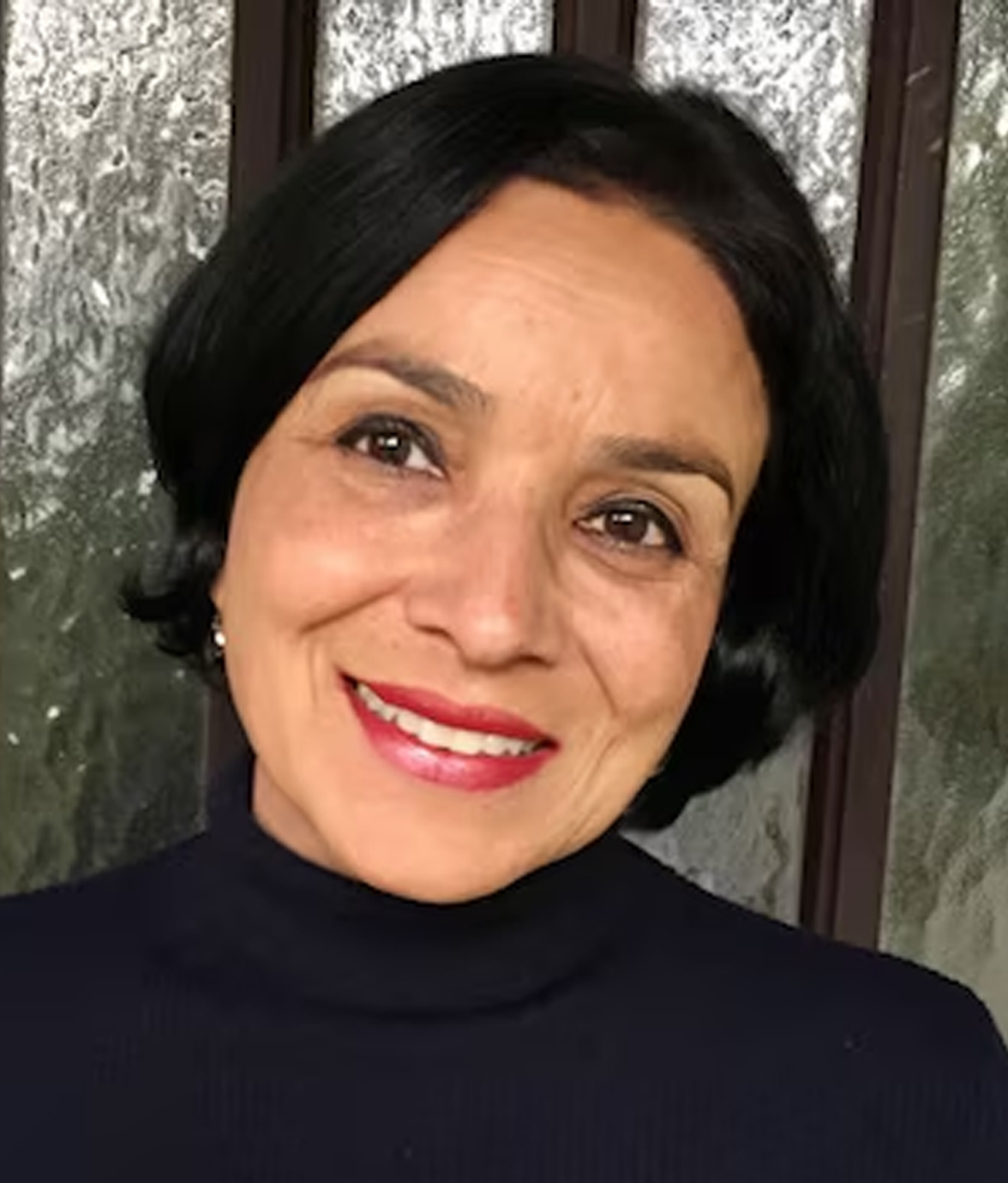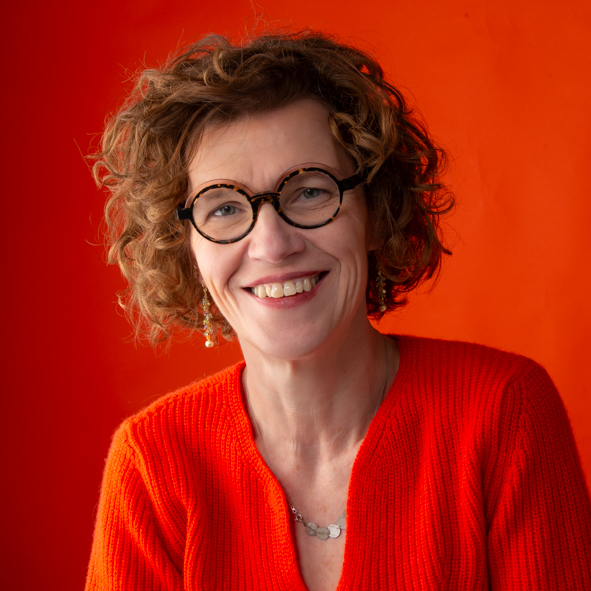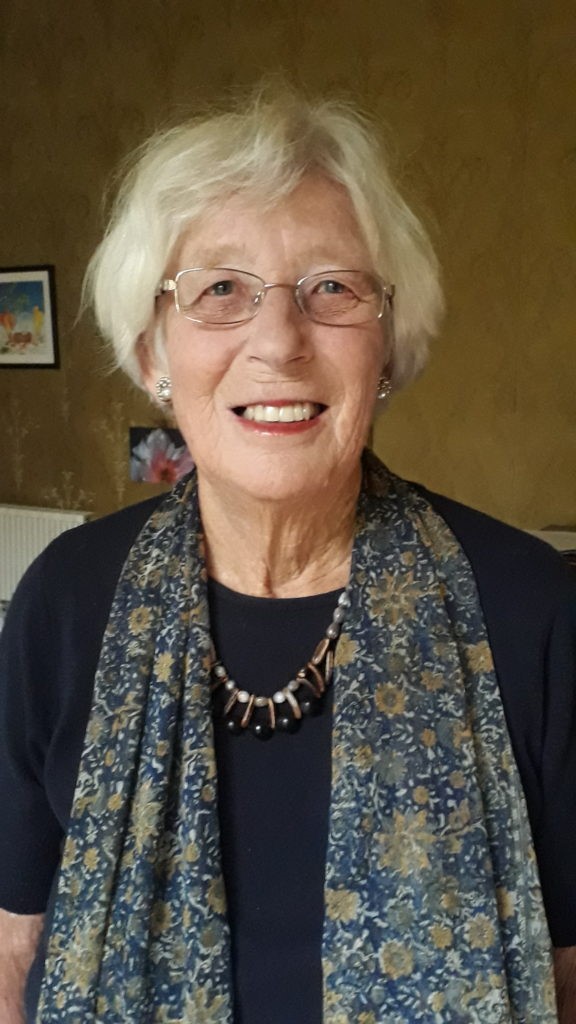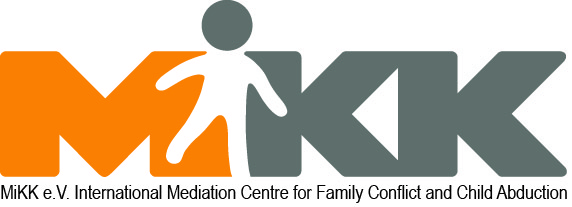MiKK Spring Webinars 2024
19th · 22nd · 24th · 26th April 2024
Workshop 1: Friday, 19th April 2024
Trauma-informed Mediation
A Webinar for Cross-border Family Mediators
with Konstanze Welz
Workshop Description
As Cross Border Family Mediators, we are very likely to work with traumatized parties. Both the parents and the children have usually just experienced a very difficult separation situation in which everything familiar has broken away and instead uncertainty has come to dominate their lives. In modern trauma research, such an experience is described as “traumatic” because it “overwhelms the nervous system of an individual to cope with an experience” (Bessel van der Kolk, MD).
Neurobiological research over the last 30 years has shown that trauma changes the brain and thus the way a person perceives and reacts to their environment. A distinction is made between different reaction patterns. What all traumatized people have in common, however, is that the nervous system remains in a hypervigilant permanent state. If it is triggered, it reacts at lightning speed – not rationally, but emotionally! This can range from short-term emotional dysregulation to dissociation. The rational thinking part of the brain is “offline” in this state and it is often impossible to calm down the affected person with words. The trauma-informed mediator is prepared for this situation and knows how to deal with it.
Based on the latest neurobiological research, in the first part of this webinar we will look at the effects of trauma on people. We learn how adaptive responses that helped a person to survive at the time of trauma are often maladaptive later in life. We distinguish between adult traumatization and childhood trauma. As the latter often goes hand in hand with attachment trauma, we also look at the consequences of attachment disorders and attachment ruptures in childhood. We look at emotional dysregulation through a trauma-informed lens and understand the mechanisms behind this out-of-control reaction. As a trauma-informed mediator we can learn to develop a compassionate attitude towards trauma survivors and their ways to cope with their trauma.
In the second part of the webinar, we will develop tools with which the trauma-informed mediator can support their clients to feel safe during the mediation session and ensure that they will remain within their “window of tolerance”. But we also develop solutions for situations where a client “loses their cool” and dissociates.
To make thoughtful decisions, parties need to be in the best frame of mind possible. A trauma sensitive and trauma-informed mediator has the knowledge and tools to help his traumatized clients to make the best decisions for themselves.
This webinar is meant to be interactive and I invite all of you to bring in your experiences, both personal and professional.
This webinar requires no prior knowledge of neuro-psychology. All terminology will be explained.

Webinar Trainer
Konstanze Welz
Born into a German – Indian family and brought up in Germany, India, and the US, Konstanze learned to navigate different cultures at an early age.
An interculturalist by birth, building bridges between cultures has always been at the heart of her work. For almost two decades – as a project manager in the German film industry – she was traveling between Germany and Asia to bring together creative and economic forces from these parts of the world.
However, a severe illness with a long road to recovery became a turning point in Konstanze’s life. She left the film industry and subsequently trained to become a transformative mediator, cross border family mediator and trauma recovery coach. She wanted her work to be more personal. Engaging families in conflict allowed her to bring to the work her knowledge about trauma as well as the personal experiences and learnings of her own family’s troubled story across three different continents.
During her recent certification in Traumatic Stress Studies at the Trauma Research Foundation in Boston she studied the latest neurobiological findings in trauma research.
Workshop 2: Monday, 22th April 2024
No Conflict without Grief Or: How to Put the Real Needs on the Agenda
A Webinar for Cross-border Family Mediators
with Veerle Lisbeth
Workshop Description
This webinar will introduce the so called “Grief-Conflict Model”, which represents a specific way of looking at and dealing with conflicts. Grief as well as Conflict are experiences which can both impact our lives profoundly. A great deal is known and has been written about grief and conflict as seperate and very different experiences. Until recently, the inner correlation between these two experiences has never been explored. It has in fact been overlooked as evidenced by the Grief-Conflict Model developed by Marion Uitslag and Tineke Rodenburg, a Dutch research team. Consisting of a mediator and a grief-therapist, the research team developed a model in order to explain the connection between these important events or experiences in every human being’s life. Their research clearly shows that these two events influence each other, concluding that profound grief (loss) almost always leads to conflict.
For family mediators having regard to the grief-aspects in a conflict can help to assist the parties to find better and more sustainable solutions. Exposing the frequently hidden grief of conflictinag parties can assist us in understandig the causes of the conflict. The more we now about the cause of a conflict the easier it is to find solutions.
During this interactive workshop an input session will be given on the working of the brain when it comes to needs and interest. Using a real-life example it will be illustrated how the “HEART Model” can be utilized to help clients see each others needs. The participating family mediators will be invited frequently to give their opinions, ask questions and bring in their own experiences on the topics and short films which will be shown. The participants will have the opportunity for discussion both in plenary as well as in in small groups during a several breakout-room sessions. The Grief-Conflict Model represents a useful tool for family mediators mediating high-conflict cross-border family mediations by helping mediators to facilitate the parents’ moving from positions to needs and interests in the mediation process.

Webinar Trainer
Veerle Lisabeth
Veerle Lisabeth was born, raised and lives in Belgium. She studied Law and was member of the Bar Association for more then 10 years.
Already in her first years at the Bar, she became particularly interested in mediation and after following a systemic approach training, she started her mediation training in 1998 – being one of the first mediatiors in Belgium at that time with a legal background! Veerle left the Bar Association in 2008 to be able to concentrate on conflict-coaching OUTSIDE the classic court related format.
Thereafter, she specialised in diffferent models as self-didact and by following a number of courses in different countriessuch as : Negotiation training at Harvard, USA; “New Authority and NonViolent Approach” at New Authority Center, Tel Aviv, Israel; “Dealing with Shame” at Institut für systemische Impulse, Entwicklung und Führung gmbh, Zürich, Switzerland, “Cross-border Family Mediation in child abduction cases” with MiKK, in Germany and other different trainings in the Netherlands especially about ‘Grief-Conflict‘ and the SCHIP-approach for couples in divorce, derived from the Grief-Conflict Model.
Apart from being a mediator and conflict-coach, Veerle gives courses, trainings and workshops on all kinds of topics related to conflict management to different target groups from collegue-mediators for teachers, authority figures in organisations, students in college and also to parents. In general: to all people wanting to know more about what conflict does to us and how we can handle it avoiding high escalation.
Workshop 3: Wednesday, 24th April 2024
Navigating High-Stakes Waters: Mediating International Parental Child Abduction Cases to Prevent Harm
A Webinar for Cross-border Family Mediators
with Dr. Jorge Guerra González
Workshop Description
In the complex landscape of international child abduction cases, mediation emerges as a crucial tool for preventing harm and restoring balance in the best interest of the child. But how exactly can mediation make a difference?
This interactive workshop explores the intricate and complex topic of mediating cases involving intentional parental bond severance, commonly known as parental alienation in parental child abduction cases. In the context of cross-border parental child abduction, mediation faces unique challenges that demand careful consideration. From navigating high-conflict dynamics to juggling multiple legal systems and strict timelines, the complexities are manifold. Research has also shown that child abduction can impact children’s development negatively in a number of ways.
Join us as we explore key questions surrounding the prevention and handling of child abduction cases through mediation. From understanding the mediator’s role and its limitations to addressing information sharing, cultural nuances, and power imbalances, we’ll dive deep into the heart of the matter.
Through interactive discussions and real-life case studies shared by the trainer and participants alike, we will uncover strategies for effectively managing mediation situations. Role plays will offer participants the opportunity to put theory into practice and to apply the knowledge and insights they have gained.

Webinar Trainer
Dr. Jorge Guerra González
Dr. Jorge Guerra González is highly experienced in the field of family mediation and child advocacy. Since 2013, Jorge has been dedicated to serving as a family mediator and child advocate (guardian-ad-litem) in family courts. His multifaceted approach involves assuming various roles, from contact facilitator to tutor and family court expert, with the overarching objective of enhancing understanding and resolution of family conflicts involving children.
In 2021, Jorge expanded his skill set by obtaining expertise in cross-border mediation in parental child abduction cases by completing the MiKK CBFM training. Equipped with comprehensive training as both a mediator and a guardian-ad-litem, Jorge is adept at navigating the complexities of cross-border disputes. His commitment to professional development led him to complete his Bachelor’s degree in Psychology in 2023, further enriching his understanding of human behaviour and conflict resolution. Fluent in Spanish, his native language, as well as in German, English, and in French, Jorge’s linguistic versatility helps him to bridge cultural divides and effectively communicate across diverse populations. Through his NGO, “INPN,” Jorge extends his reach to Africa and Latin America, serving as a valuable resource in promoting cultural understanding and conflict resolution.
For Jorge, his work is not merely a profession but a continuous journey of knowledge expansion and growth. Jorge is dedicated to developing and implementing strategies that promote the well-being of children and foster harmonious family relationships. Passionate about social justice, Jorge strives to make a meaningful difference in the lives of families and children around the world.
Contact Jorge Guerra González: kontakt@jorgeguerra.de
Bonus Workshop 4: Friday, 26th April 2024
What About Me? The Child’s Right to be Heard
A Webinar for Cross-border Family Mediators
with Lisa Parkinson
Workshop Description
The Brussels II Regulation of March 2005 upholds the UN Convention 1989 on the child’s right to be heard on decisions concerning the child, but this recognition does not ensure that the voice of the child will be heard either in court or out of court proceedings, such as mediation. Court-appointed social workers and psychologists do not always have regard to the child’s views and concerns, while parents tend to think that involving their child in mediation would make the child anxious and more aware of problems.
Since 2017, national guidelines, principles and requirements in England and Wales for accredited mediators to have additional training in child-inclusive mediation are resulting in significantly more children and young people having the opportunity to talk with a qualified family mediator. Feedback from children shows that it helps them greatly to talk with a professional they feel able to trust and if they wish, decide a message or suggestion that they ask the mediator to share with their parents or carers. Research studies in the UK and other countries also show that talking with a qualified family mediator benefits children’s mental health and that their messages for their parents and carers facilitate arrangements that take account of children’s views and wishes and work well for all concerned. Even young children who are consulted show more insight and understanding than adults generally expect. The 13th European Forum on the Rights of the Child 2020 ended with these words from the children who participated:
‘We need a strategy that is inclusive of all children and that supports children in vulnerable situations and we need a strategy that supports and promotes our right to participate in decisions that affect us. Because nothing should be decided for children without children. It’s time to normalise child participation.’
Participants in this webinar will be encouraged to share views and raise questions on child-inclusive mediation.

Webinar Trainer
Lisa Parkinson
Lisa Parkinson is an accredited family mediator (now retired from practice) and trainer in the UK, involved in developing mediation since the late 70s with a focus on helping families to manage change, rather than adult-only negotiations.
She is a co-founder and vice-president of the Family Mediators Association, a founder member of World Mediation Forum, (inaugurated Madrid,1995), a member of the Hague Conference Group of Experts on the Guide to Good Practice in International Family Mediation (July 2012) and an honorary member of the Association of Family Mediators of Ukraine. Lisa has given mediation training in countries, including North and South America, the French Antilles, Morocco, Scandinavia, South Africa, Turkey and Kazakhstan.
The 4th edition of her book, Family Mediation, was published in 2020 and her latest book Conversations with Young People in Family Mediation was published in February 2024.

